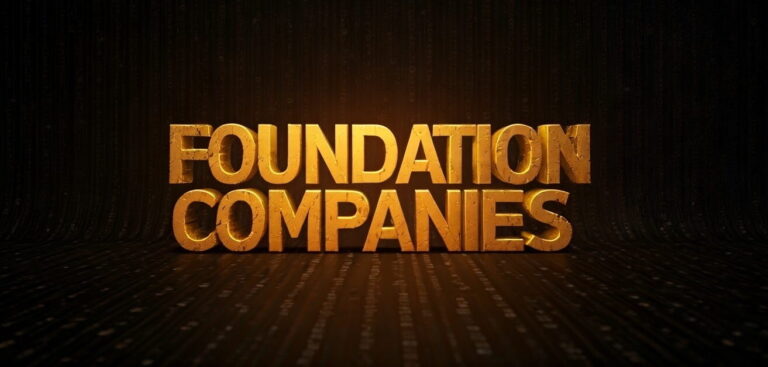
Key takeaways:
- Cayman Islands foundation companies remain the premier vehicle of choice for “wrapping” a Decentralised Autonomous Organisation (DAO). The foundation company structure balances the flexibility required for DAO operations with the formal legal protections offered by a formal legal corporate wrapper.
- Recent developments in U.S. law, particularly the ruling in Samuels v. Lido DAO, highlight the liability risks for participants in unwrapped DAOs. The Lido DAO judgment signals that unwrapped DAOs face heightened scrutiny and highlights the vulnerabilities of participants in DAOs who could be liable under partnership laws in jurisdictions like California.
- Although as yet untested in the courts of the Cayman Islands, it is intended that FCs provide a shield of liability for DAO members against personal liability for the DAO’s obligations or legal claims brought against DAOs.
What does it means to “wrap” a DAO?
In the rapidly evolving landscape of blockchain-based projects, the legal structuring of decentralised autonomous organisations (DAOs) has become a critical consideration. Among the myriad options, the Cayman Islands foundation company has emerged as the most popular and versatile vehicle for “wrapping DAOs.” The vast majority of blockchain protocols, which have their own custom blockchain, are community projects; many of them with community governance at their core. Traditional corporate structures are at odds with the protocol’s “community.” These structures require there to be a shareholder or member: in other words an “owner.” Foundation companies provide a solution to this problem. They can be structured in such a way that they do not require an owner (that is the foundation company can be member-less) and instead they can be governed by the DAO.
This article explores: what it means to “wrap” a DAO; why foundation companies remain the premier vehicle of choice for “wrapping a DAO;” and examines how foundation companies can provide a solution to the problem presented in the recent case of Samuels vs. Lido DAO (2024) which highlighted potential liability issues for DAO participants in unwrapped DAOs.
The Cayman Islands foundation company: An overview
Foundation companies, introduced under the Foundation Companies Act 2017, combine the flexibility of a company limited by shares or guarantee with the features of a trust or traditional civil law foundation typically used for succession planning and philanthropic purposes. Unlike conventional companies, a foundation company does not have to have shareholders. Instead, it can be incorporated by guarantee with a defined purpose and governed by a board of directors; with the ability to incorporate bespoke governance frameworks including token-holder based voting mechanisms directly into the foundation company’s constitutional documents. This provides a neutral, shareholder-free structure that aligns with the decentralised ethos of DAOs.
Key features include:
- Legal personality: Foundation companies are separate legal entities, allowing them to own assets, enter contracts, and sue or be sued, effectively a foundation company is the real-world entity that represents the DAO.
- Limited liability: Although as yet untested in the courts of the Cayman Islands, it is intended that foundation companies provide a shield of liability for DAO members against personal liability for the DAO’s obligations or legal claims brought against DAOs.
- Purpose/object-driven structure: Foundation companies can be created to serve a specific purpose, making them ideal for DAO governance, treasury management, grant programs and protocol maintenance.
- No shareholders: Foundation companies can be limited by guarantee rather than by shares. The absence of shareholders eliminates potential conflicts between profit-seeking investors and the DAO’s community-driven objectives.
- Customisable governance: Foundation companies can be governed by the DAO. Pursuant to the by-laws adopted by the foundation company and subject to applicable law, the directors of the foundation company will take instructions from the DAO and effect the proposals approved by the DAO.
- Regulatory certainty: The Cayman Islands’ regulatory environment is well-suited for crypto projects, with robust anti-money laundering measures and specific, transparent, digital asset legislation in the form of the Virtual Asset (Service Providers) Act (as amended).
What does it mean to ‘wrap a DAO’
In simple terms “wrapping a DAO” involves incorporating a legal entity, for example, a foundation company to act as the formal legal representative or operational entity for the DAO. The by-laws adopted by the foundation company will set out DAO governance typically using token-holder based voting which is then embedded in the memorandum and articles of association. Subject to applicable law, the directors of the foundation company will then take instructions from the DAO and effect the proposals approved by the DAO. In practice, this means that all actions of the DAO are effected through the foundation company and all the actions of the foundation company are approved by the DAO. Therefore, incorporating a foundation company as the “wrapper for the DAO” provides the DAO with a recognised legal framework for the DAO’s activities, mitigating risks and clarifying the rights and obligations of its participants.
The impact of the Lido DAO judgment on foundation companies as legal “wrappers” for DAOs
Recent developments in U.S. law, particularly the ruling in Samuels v. Lido DAO, highlight the liability risks for participants in unwrapped DAOs. A federal judge in the US District Court of California ruled that Lido DAO, which had not put in place any legal “wrapper” qualifies as a general partnership under California law, meaning the Lido DAO members could be sued joint and severally as partners under traditional partnership laws in California. This judgment significantly challenges the decentralised governance model by potentially treating all identifiable members, including those who voted or participated in discussions, as liable partners. Such a decision underscores the vulnerabilities of DAOs that lack a formal legal structure and emphasises the necessity of using legal wrappers like foundation companies.
In this context, the key benefit of using a foundation company as a “wrapper” is that it benefits from limited liability, protecting its members and stakeholders from personal legal exposure. The foundation company structure balances the flexibility required for DAO operations with the formal legal protections offered by a formal legal corporate wrapper. Unlike general partnerships or informal arrangements, a foundation company is a recognised legal entity that can enter into contracts, own assets, and shield participants from personal liability.
The potential effect of the Lido judgment on foundation companies
We anticipate that the Lido DAO ruling could drive increased adoption of incorporating foundation companies to act as “wrappers for DAOs”. Organisations seeking to launch a DAO are likely to prioritise structures that mitigate legal risks and personal liability. The Lido DAO judgment signals that unwrapped DAOs face heightened scrutiny and highlights the vulnerabilities of participants in DAOs who could be liable under partnership laws in jurisdictions like California.
This case reinforces the importance of having a legal wrapper for DAOs to ensure compliance, reduce uncertainty, and protect stakeholders. Foundation companies with their neutrality and robust asset protection features, are poised to remain the leading choice for DAO wrappers in the face of such growing scrutiny.
Conclusion
Foundation companies remain the global choice for wrapping DAOs due to its unmatched flexibility, legal recognition, and alignment with decentralised governance ethos. While other jurisdictions offer viable alternatives, none have replicated the Cayman Islands’ unique blend of regulatory certainty and adaptability.

Melissa Lim is a partner at Walkers in the Cayman Islands.


